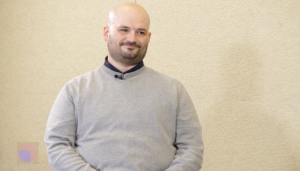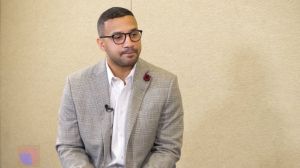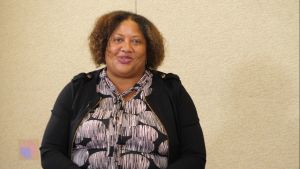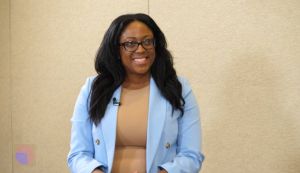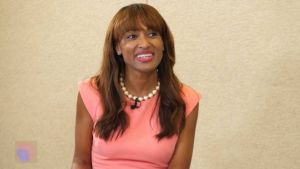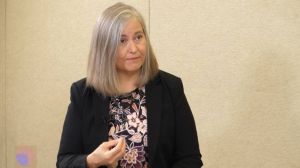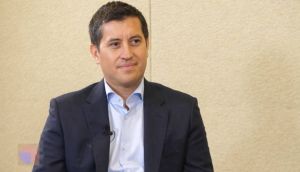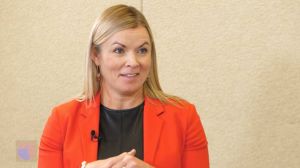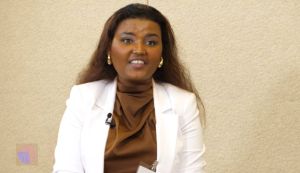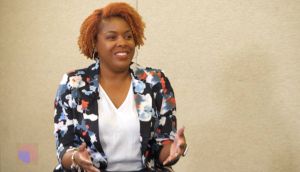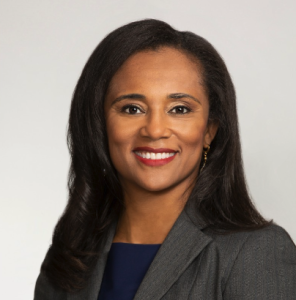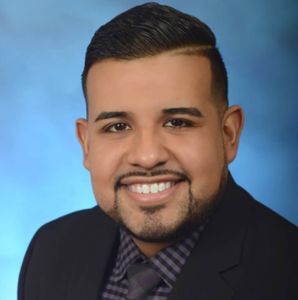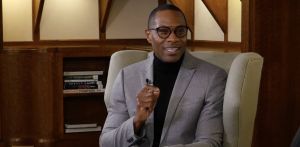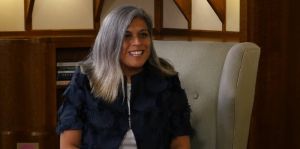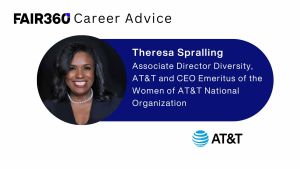The Senior Vice President of General Purpose Credit card for Wells Fargo Cards and Retails Services gives insight into strategies for exposure, initiative, and growth.
1. What is your advice to young professionals just starting out in their career?
When first starting in your career, make sure you are open to new thoughts and ideas. I always tell folks you need to be a sponge in any new assignment because every piece of information or new relationship may prove highly valuable down the road. Get to know the company and understand the intricacies of the businesses you support. Ask questions to make sure you are clear about priorities and objectives, and you can articulate how your work supports those goals. Form relationships with people at all levels across your specific business and the wider company. One of the most important things you can show early in your career is an interest and passion for whatever it is you do, and connecting to people throughout your company helps underscore your commitment to your role and your work ethic. Raise your hands for those assignments that are challenging and expose you to new parts of the business. Remember, no matter where you work there is always an opportunity to bring something new to the table. No company has all the answers, so if you start by asking curious questions you will identify opportunities for new thinking and give yourself the opportunity to demonstrate that you are ready for a challenge. One final important element is to “watch and listen to the room.” In other words: find a way to build on someone’s thoughts and ideas instead of focusing on your ideas and your desire to share.
2. After a few years of experience, how can individuals continue their professional development and look to make an impact in any industry/field?
Never stop learning! After more than 25 years in financial services, I still learn something new every day and that’s one important attribute I see in successful leaders. Be curious and seek out different perspectives about things. Look for senior leaders and managers who could serve as mentors to help guide your journey – I’ve found that the best leaders are those who want to pay it forward for those coming behind them. Having a strong mentor can help you determine the best path for getting where you want to be. Sometimes that might involve more formal education, while other times it might require taking a lateral move to learn more about your company. Be open to all of that as it’s all part of your career path.
3. In your opinion, what is the difference between a mentor and a sponsor and do you need both? If so, why?
It’s really important to understand the distinction between a mentor and a sponsor because they can play very different roles in helping you advance your career. A mentor is someone who can provide perspective about a broad variety of topics: managing your career, developing a new skill set, identifying your passions. Mentors provide informal guidance and are terrific resources for asking questions and gaining new insights. Sponsors are direct advocates for you in advancing your career. They are leaders who have worked directly with you and seen your skills and work ethic on a daily basis. Sponsors can go into talent discussions within a company and make sure your name is coming up in conversations about leader development and potential new roles. Having mentors AND sponsors is important because their diversity of perspectives and experiences will enrich you both personally and professionally. It’s also important to be a mentor and a sponsor, to help those coming behind you reach their full potential.
4. As a woman of color in business, how far has corporate America come as far as representation and where is there room to grow?
While there has been tremendous progress made in the hiring of women and minorities, we will all agree there is much more work to be done. My first job out of college helped that company to fulfill the goal for the year. The strategic plan clearly stated, increase by 1 the number of minorities in the department. I couldn’t believe it when I saw those words on paper. However it was a sign of the times. I also remember a time when I was the only woman of color in my area, therefore, I had to attend every diversity workshop as there was no one else to select. We have come so far, as today there is good representation of women and minority groups at the table to share their varied diverse perspectives.
Over the course of my career, I have seen progress in terms of diverse representation but I’d say it’s still not moving terribly fast. Having come up in financial services, which has historically been an industry with a lower level of diversity, there were many times early in my career where I was the only female AND the only African American in a room. I had become accustomed to that, but I do notice now that I’m seeing more different kinds of faces around the table, which is great! In terms of helping drive change, I think that comes from everyone having an awareness and then modeling the behaviors needed to drive that change. My approach has always been to reach out broadly across any company where I work, to make myself accessible to young men and young women. Everyone has to understand they have a role to play in these conversations and to call out very specifically when you are not seeing groups or hearing voices from particular minority groups. I try to bring everyone along in the journey.
5. How do you stay grounded and balanced in work/life as you’ve worked your way up to a senior leader position at Wells Fargo?
My balance comes from my deep gratitude for my career progression. I don’t take it for granted, as I know life is filled with a series of challenges and opportunities that are never ending. Also the network of people I have built around me throughout my life is key to my grounding. The attitudes and behaviors of my circle plays a big role in my life. I am fortunate to have a wonderful set of family members and friends who have supported me throughout my professional journey and provided me with much-needed humor and perspective. They keep it real for me. I make the time to stay connected with these people throughout the work week because their good humor and sage advice is incredibly energizing! My best sense of grounding comes from those mature women in my life. Their wisdom guides me through the good and challenging times that we will all face.
Heather Philp is the Senior Vice President of General Purpose Credit card for Wells Fargo Cards and Retails Services. She has Product Management responsibility for all non-cobranded credit cards including College, Secured, and Mass Market products. She oversees all aspects of product management from product structure, target segments, pricing, product experience, new product development as well as enhancement benefits associated with all credit cards.
A twenty five year veteran in the credit card business, Heather joined Wells Fargo in 2013 to lead product management for the Mass market credit cards. Her responsibility has expanded over the years to include the College, Secured, New Product Development and Enhancement products.
Prior to joining Wells Fargo, Heather held a number of positons at JPMorgan Chase, Citi, Fleet and AT&T Universal Credit card. She received her MBA from the University of North Florida and has a Bachelor’s Degree in Business and Psychology.


